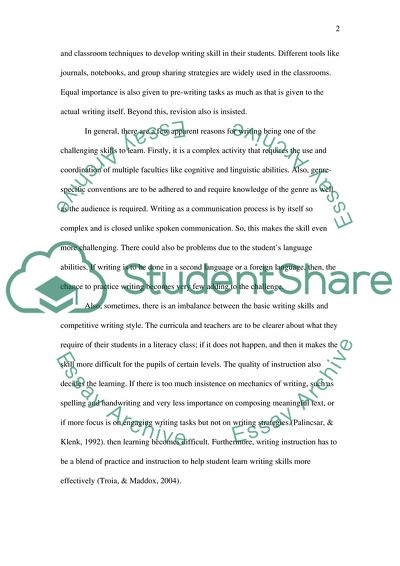Cite this document
(Literacy Development in British Schoolchildren Literature review, n.d.)
Literacy Development in British Schoolchildren Literature review. Retrieved from https://studentshare.org/education/1561639-discuss-teaching-strategies-that-enhance-pupils-writing-ability-with-particular-reference-to-improving-boys-writing-skills-focus-on-at-least-two-different-genres-of-writing-in-your-answer
Literacy Development in British Schoolchildren Literature review. Retrieved from https://studentshare.org/education/1561639-discuss-teaching-strategies-that-enhance-pupils-writing-ability-with-particular-reference-to-improving-boys-writing-skills-focus-on-at-least-two-different-genres-of-writing-in-your-answer
(Literacy Development in British Schoolchildren Literature Review)
Literacy Development in British Schoolchildren Literature Review. https://studentshare.org/education/1561639-discuss-teaching-strategies-that-enhance-pupils-writing-ability-with-particular-reference-to-improving-boys-writing-skills-focus-on-at-least-two-different-genres-of-writing-in-your-answer.
Literacy Development in British Schoolchildren Literature Review. https://studentshare.org/education/1561639-discuss-teaching-strategies-that-enhance-pupils-writing-ability-with-particular-reference-to-improving-boys-writing-skills-focus-on-at-least-two-different-genres-of-writing-in-your-answer.
“Literacy Development in British Schoolchildren Literature Review”. https://studentshare.org/education/1561639-discuss-teaching-strategies-that-enhance-pupils-writing-ability-with-particular-reference-to-improving-boys-writing-skills-focus-on-at-least-two-different-genres-of-writing-in-your-answer.


